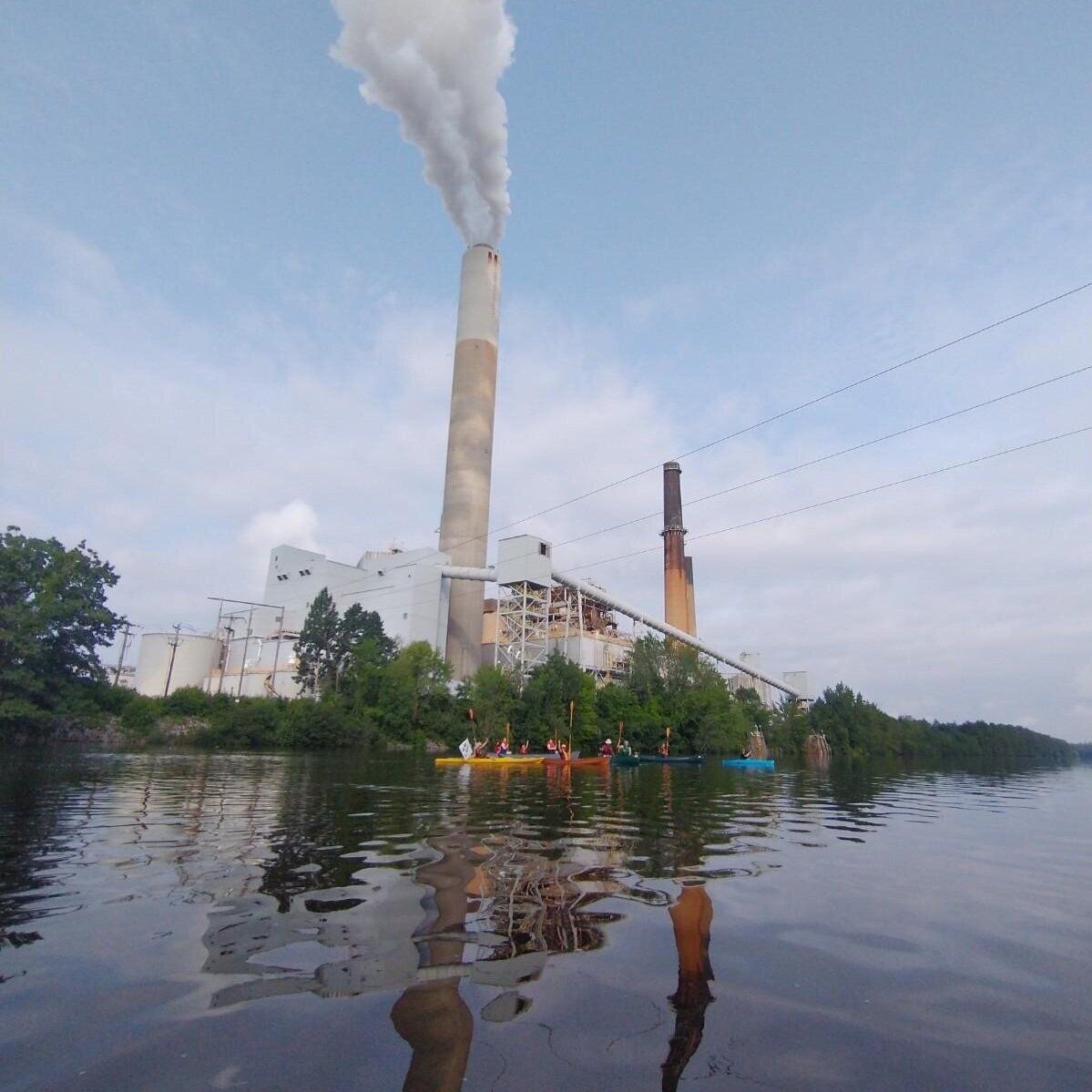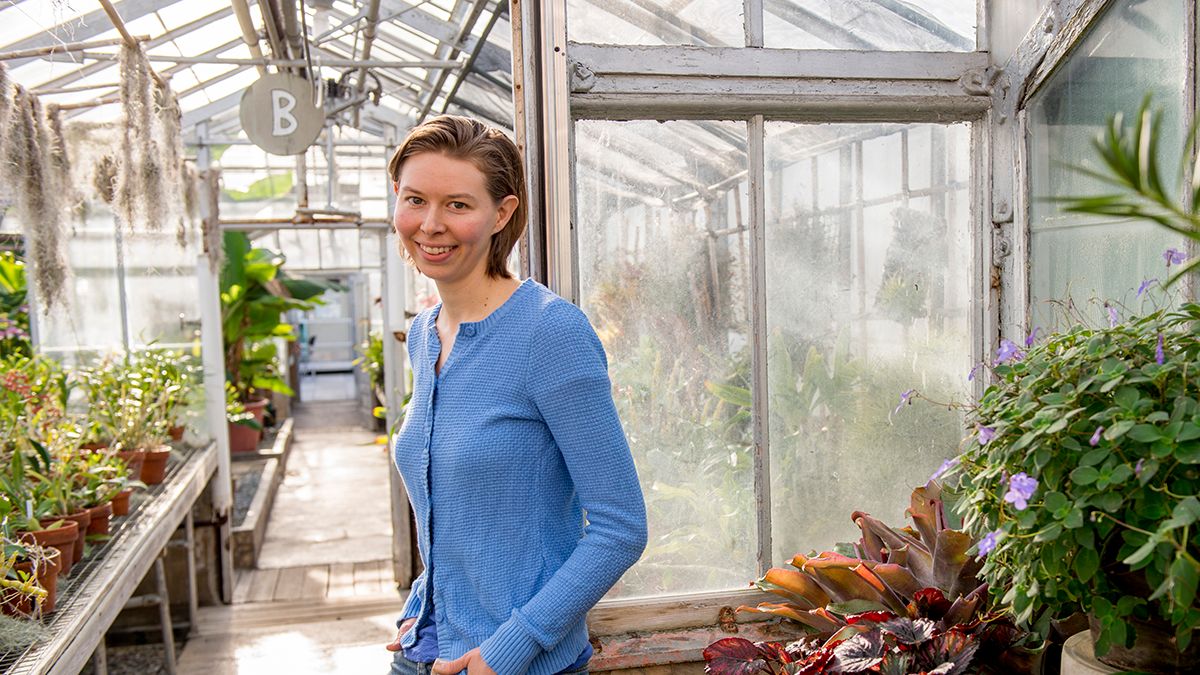A protest at New England’s last remaining coal-fired power plant — Merrimack Station in Bow, New Hampshire — could draw hundreds of people from around the region this weekend, including many climate change activists who were arrested at a similar event two years ago.
One of them is University of Maine researcher Sonja Birthisel, who also directs the school’s interfaith Wilson Center. She and 18 other activists still have stay-away orders from the New Hampshire coal plant, as they continue to fight trespassing charges from the 2019 rally there.
The New Hampshire facility now supplies about 1% of the region’s electricity each year, running mainly on hot and cold days when demand is high. But activists like Birthisel say any coal is too much. She spoke with Spectrum News Maine about why shutting down the plant, in the name of fighting climate change, is enough to make her and dozens of friends risk arrest.
This interview transcript has been edited for length and clarity.
I'm mostly from Maine. I grew up here from age 7, and my grandfather was a dairy farmer in southern Maine. I grew up as a kid loving to be outdoors and just very connected to nature. I was given the book Silent Spring (by Rachel Carson) when I was 11, and that really set me on the course toward being concerned about human impact on the environment. I ended up studying biology in Iowa, a landscape pretty transformed by industrial agriculture, and I came to hold this tension around, how do we feed people while also stewarding the environment?
I returned home to Maine to work in organic farming systems. When I started a master’s degree in weed science (at the University of Maine), only a couple of my colleagues were really thinking about climate change. And that didn't sit well with me — like, we're using so much of our brain power to study things that, a couple decades from now, might not matter if our climate shifts to a degree where the problems we face are fundamentally different.
Climate change was like the bigger-picture rain cloud hovering over my efforts to solve practical problems that matter to farmers. More broadly, I became increasingly aware of the reality that we are just not doing enough. I have always had a pretty strong sense of justice and fairness that I think was ingrained through my own religious upbringing (as an Evangelical Lutheran), through which I learned that every human life is equally precious.
And in 2019, I reached a bit of a tipping point. I had risen to a level where I was doing about as much as I could to address climate change through the scientific channels. I became increasingly frustrated by what I felt was not an appropriate sense of urgency. So I heard the call to try something different, from some hippie activist friends I knew through contra dancing. I was like, what do I have to lose, other than my respectability, which is not doing me as much good as I hoped it would? I'm over here spinning my wheels. So let's shut down a coal plant.
I love when people ask me that question because it allows me to do a little piece of education. We have a regional electricity grid in New England, so the electrons flowing to my ugly fluorescent lights overhead right now are being generated by natural gas plants in Massachusetts and by hydropower here in Maine. But it's all one unified system, and so this coal plant is in our backyard, in terms of how it impacts us as a New England community.
And again, I'm a person who doesn't have trouble identifying with or feeling that people in other regions or other locales are important. So the fact that my electricity is coming from a coal plant that is polluting our collective global atmosphere, causing potential human health impacts for the folks who lived directly downwind and causing pollution on the Merrimack River — all of that feels, to me, important. I'm a consumer.
A theme of nonviolent direct action is to have power in pushing the envelope of what is possible and what is imaginable, in such a way that what is practical shifts in that direction. It’s a protest tactic where we, with intentional non-violence, are acting to either stop harm in ways that draw attention to injustice, or are working to build the world that we wish existed.

The campaign has three goals: to build unity around the goal of the best world we can conceive of; to demonstrate what's possible — like if we can shut down a coal plant or get a pipeline canceled (like one proposal scuttled in New Hampshire in 2020), that provides a model for people around the world to do that in their home communities too; and the third thing is, well, shut down the coal plant, but in that order of priority.
This is a global issue, and we are going to need the kind of community and resilience and care for one another that will help us welcome climate refugees and develop new systems of making sure that everyone is fed and housed. So that's baked in as well, wanting to be there for one another in solidarity, come hell or high water.
Coal is kind of the low-hanging fruit. This coal plant is the last one in New England at this point, the most egregious thing we are still burning on the New England grid. So this is the obvious thing that should get shut down first in our transition to a fossil-free economy.
Oh, I'm so excited that you asked. There are some details that we're keeping a little bit on the down-low, because it is already public that we are going to be back in the neighborhood. But what I will say is that we're not going to wait for permission to start creating the world that we wish existed. And so our intention is to start transitioning the plant to what it should be.
The coal plant’s owner, New Hampshire-based Granite Shore Power, declined to comment. The protest events this weekend begin Friday and run through Sunday. Negative COVID tests are required and vaccinations are highly encouraged for participants. Details can be found here.






